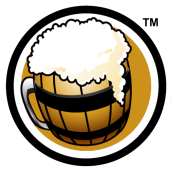Hops
|
Amount
|
Variety
|
Cost
|
Type
|
AA
|
Use
|
Time
|
IBU
|
Bill %
|
|
60 g |
East Kent Goldings60 g East Kent Goldings Hops |
|
Leaf/Whole |
5.5 |
Boil
|
60 min |
37.96 |
100% |
|
60 g
/ $ 0.00
|
Mash Guidelines
|
Amount
|
Description
|
Type
|
Start Temp
|
Target Temp
|
Time
|
|
13 L |
|
Infusion |
-- |
64 °C |
90 min |
|
17.9 L |
|
Fly Sparge |
-- |
77 °C |
-- |
Starting Mash Thickness:
3 L/kg
|
Other Ingredients
|
Amount
|
Name
|
Cost
|
Type
|
Use
|
Time
|
|
1 each |
Whirlfloc Tablet
|
|
Fining |
Boil |
15 min. |
Target Water Profile
Barnsley, South Yorkshire, UK
Notes
Add 500mg potassium metabisulphite to 20 gallons water to remove chlorine/chloramine (as required).
Water treated with brewing salts to: Ca=51, Mg=10, Na=16, Cl=71, S04=71
(Keeping the Cl:S04 ratio even for a balance between malt and bitterness, hitting the minimums on Ca and Mg).
Grind the roasted barley fine (I use a setting of 10) and add it after the 90 minute mash rest is complete. This avoids lowering the mash pH too far and reduces the chance of astringency which can occur from over-steeping highly roasted grains. Once the 90 minute mash is over, stop the mash pump, add the roasted barley, and give it a good stir to mix it into the existing grain bed. You need to stir well as otherwise the fine layer of powdery roasted barley on top may stop the flow. Start the mash pump again and continue with your mashout. The wort will be cloudy again but it will clear as the grain bed rises to mashout temperature over 20-30 minutes.
Try and use the recommended White Labs WLP-004 or Wyeast 1084 Irish Ale yeasts. While something like Fermentis Safale US-05 (American Ale / Chico) yeast can be substituted and works well, it's just not the same as it's a bit too clean fermenting and lacks some of the complexity.
Serve this beer with fairly low carbonation (the lower the better in my humble opinion, or even better, as a cask ale). If you have the means to serve it through a beer engine with no extra carbonation at all other than residuals left over from fermentation, do it! I think you'll really enjoy the difference. I serve mine on a stout faucet pushed by 30/70 C02/Nitrogen blend to get a nice creamy head and close to flat beer, exactly how Guinness is served on tap. One cheap and inexpensive way to (sort of) mimic this is to use a syringe. Pour the beer as you would normally and then suck up a syringe full and force it back into the beer, hard. Repeat 2-3 times and you'll knock most of the C02 out of solution leaving a nearly flat beer with a creamy head. Over carbonation destroys a lot of the subtleties of this beer. Don't over carbonate!
add 88% lactic acid to the beer after fermentation is done, before kegging. This is said to be what Guinness does today because it's cheaper, easier, and more efficient than relying on bacteria. All is takes is around 3-4 ml per 5 gallon keg. Go sparingly adding 0.5 ml at a time until the taste is to your liking. You can also use this method to do a trial run to see if you like the results: Once the beer is kegged and on tap, add 1-2 drops with an eye dropper to a 16 oz glass of beer and see what you think. 1 drop per 16 oz is equivalent to 2 ml in 5 gallons. Careful not to overdo it!

Last Updated and Sharing

- Public: Yup, Shared
- Last Updated: 2018-06-06 10:59 UTC
For quick copying and pasting to a text based forum or email.
Click the Download as HTML file button below.
Recipe costs can be adjusted by changing the batch size. They won't be saved but will give you an idea of costs if your final yield was different.
|
Cost $ |
Cost % |
| Fermentables |
$ |
|
Steeping Grains
(Extract Only) |
$ |
|
| Hops |
$ |
|
| Yeast |
$ |
|
| Other |
$ |
|
| Cost Per Barrel |
$ 0.00 |
|
| Cost Per Pint |
$ 0.00 |
|
| Total Cost |
$ 0.00 |
|
Discussion about this recipe:
